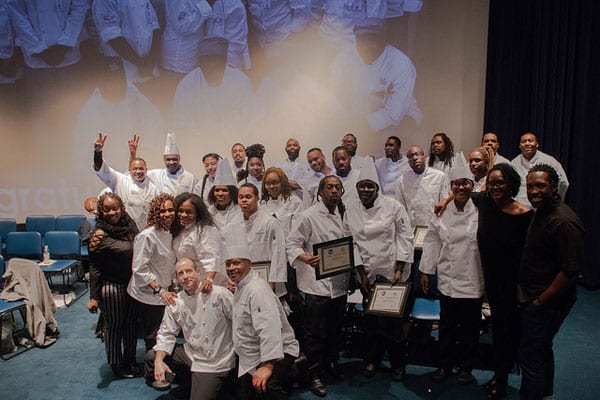
March 14, 2019; Washington City Paper
Earlier this year, NPQ ran a story about a social enterprise in Modesto that lost out on a contract because it was outbid by a private vendor. At the time, we wondered whether the social benefit of gainful employment for disabled residents provided by the nonprofit might’ve justified the city accepting the nonprofit’s bid, even though the city would gain an additional $18,000 by contracting with the for-profit. In that case, however, at least the reason for the city’s decision was clear.
Now, from Washington, DC comes a stranger case. Here, a nonprofit social enterprise outbid its for-profit competitor on price—and lost $800,000 worth of business anyway.
The nonprofit in question, DC Central Kitchen, runs a reentry program that trains returning citizens (formerly incarcerated individuals) in culinary careers while providing healthy meals for schools, catering events, and helping local farmers by purchasing “seconds” from nearby farms. In its last fiscal year, the nonprofit graduated 86 people from its culinary training program, with an 87 percent placement rate (and with 85 percent still employed one year after placement). The nonprofit generated over $9 million in revenue, covering more than half of the nonprofit’s total expenses. All told, the nonprofit provides three million meals a year for homeless shelters, schools, and nonprofits. The 30-year-old social enterprise was also recently featured on an NPQ webinar.
Morgan Baskin, writing for the Washington City Paper, explains that the contract in question “is managed by an organization called The Community Partnership for the Prevention of Homelessness (TCP), a social services nonprofit that the local city government pays over $80 million annually to operate a number of local homeless shelters.”
“TCP has long paid DC Central Kitchen to serve the majority of meals provided to sheltered homeless residents in the District,” notes Baskin, adding, “In recent years, the organization’s annual contract with TCP has covered 10 shelters and was worth about $2.2 million, a number that decreased slightly to $1.8 million as District agencies wound down and eventually ceased operation of the DC General shelter last year.”
Sign up for our free newsletters
Subscribe to NPQ's newsletters to have our top stories delivered directly to your inbox.
By signing up, you agree to our privacy policy and terms of use, and to receive messages from NPQ and our partners.
But in 2018, the city finalized its master contract with TCP and the group in turn re-opened the bidding process for its subcontracts. And DC Central Kitchen lost contracts involving providing “roughly half a million meals per year at the city’s largest shelter sites” to Henry’s, a small private for-profit restaurant and catering business.
Alexander Moore, development officer for DC Central Kitchen, speculates that Henry’s may have won the contract because it is a certified business enterprise (CBE)—a local business that receives preference in procurement. DC Central Kitchen is also based locally, but apparently cannot qualify as a CBE because it is a nonprofit.
Under its new agreement with TCP, DC Central Kitchen serves only 800 meals per day across five shelters, down from 2,500 meals a day at 10 shelters. It is also, notes Baskin, “reimbursed at a lower rate per meal than Henry’s—at $3.05 for breakfast and $3.50 for dinner, compared with Henry’s’ $3.20 and $5.18, respectively— according to budget documents submitted to the DC Council by the city’s Department of Human Services.” Baskin adds that, “Henry’s will also receive $3.75 for a ‘specialty breakfast,’ $5.18 for lunch, and $7.50 for ‘specialty dinner.’” By contrast, “DC Central Kitchen will not be reimbursed for these offerings,” Baskin explains.
The loss in contract income, notes Moore, has “jeopardized more than a dozen jobs we’re fighting to keep.”
In response, the nonprofit has called for greater transparency in the bidding process. “It’s a structural problem because it’s a sub-vendor relationship,” Moore tells Baskin. “This is an opportunity to rethink whether food service should be part of TCP’s master shelter contract, or managed separately,” Moore adds.—Steve Dubb












